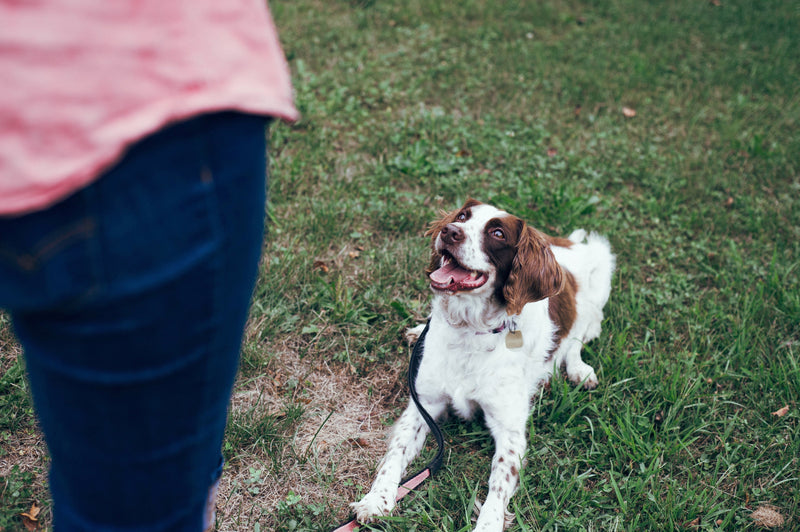
Dog Aggression Towards Noises: How Can You Calm Your Pup?
Share
For many health-conscious pet owners, dealing with dog aggression towards noises can be both challenging and concerning. Loud sounds like fireworks, thunderstorms, or even the vacuum cleaner can trigger anxiety and lead to aggressive behavior in dogs. Understanding this behavior is crucial to addressing it effectively and ensuring your pet's well-being.

Understanding the Root Causes of Noise-induced Aggression
The sudden outburst of anger or fear in response to certain noises can be attributed to several factors. It's essential to recognize that a dog's aggression is often a reaction to their environment, rather than a character flaw.
Instinctual Reactions
Dogs may react aggressively to loud noises due to their instinctual response mechanisms. Unlike humans, dogs are wired to respond to threats in their environment, which can manifest as aggression when they perceive a noise as a potential danger.
Previous Trauma
Puppies who have experienced neglect or trauma might associate certain sounds with negative experiences. Such associations can trigger an aggressive demeanor every time they encounter similar noises. For example, a dog that had negative experiences may exhibit aggression towards mirrors due to past experiences.
Recognizing Triggers and Responses
Identifying the specific sounds that unsettle your dog is pivotal in mitigating noise aggression. Observing your pet closely during different environments and scenarios can help accurately determine these triggers.
Common Noise Triggers
Every dog is unique, but several common sounds can often lead to aggression. Recognizing signs of distress in your little friend when encountering loud noises, sudden bangs, or even everyday sounds like a ringing doorbell is the first step to addressing this issue effectively. Read more about dog training advice to avoid aggressive responses.
Physical and Behavioral Indicators
When your dog is exposed to noisy stimulations, look for physical symptoms like trembling, panting, or growling as they signal discomfort and fear. Proactive awareness can help you take immediate actions to comfort your pet before the aggression escalates.
Strategies for Managing Aggression
With a precise understanding of why your dog reacts aggressively to noises, implementing appropriate strategies is the next step. Here are a few tips:
Desensitization Training
Gradual exposure to noise stimuli in a controlled manner can help lessen your dog's aggressive responses. By familiarizing your pet with a range of noises over time, you can reduce their sensitivity to these sounds.
Calm and Safe Environment
Creating a safe space in your home where your dog feels secure can minimize anxiety. Offering comfort, coupled with the use of soothing music or pheromone diffusers, can greatly assist in keeping their aggressive responses at bay.
You can find more tips on managing aggressive behavior by checking out similar topics, such as aggression towards TV or puppy training.
Professional Support and Veterinary Advice
When your strategies at home arent enough, consulting with a veterinarian or a professional pet trainer is vital. They can provide personalized guidance based on your dogs needs, which can significantly impact behavior.
Moreover, professional intervention can offer insights into previously unnoticed medical concerns that could be contributing to aggression, ensuring a holistic strategy in managing your canine companion's health.

FAQs
Why does my dog get aggressive during thunderstorms?
Thunderstorms are a common trigger for dogs due to the combination of loud noises and environmental changes, like static electricity and barometric pressure shifts.
Can certain breeds be more sensitive to noise?
While all dogs can develop noise sensitivity, certain breeds may be more prone due to their temperament or genetic predispositions.
Are there medications that help with noise-related aggression?
Yes, veterinarians can prescribe anti-anxiety medications to assist dogs with severe noise sensitivities. However, this should always be complemented with behavioral management strategies.
This article contains affiliate links. We may earn a commission at no extra cost to you.
